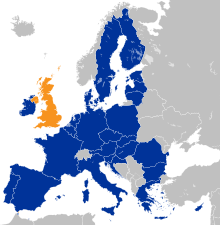 |
| View of Mannheim Author Georg Buzin Licence CC BY-SA 4.0 Source Wikimedia Commons |
Court of First Instance of the Unified Patent Court, Mannheim Local Division (Presiding Judge Tochtermann, Legally qualified Judges Böttcher and Agergaard and Technically qualified Judge Wismeth) Fujifilm Corp. v Kodak GmbH and Others UPC_CFI_365/2023 18 July 2025
A “European patent (UK)” is defined by s.130 of the Patents Act 1977 as "a European patent designating the United Kingdom." S.77 (1) of the Act provides that "a European patent (UK) shall, as from the publication of the mention of its grant in the European Patent Bulletin, be treated for the purposes of Parts I and III of this Act as if it were a patent under this Act." Until now, an owner of a European patent designating the UK who believed that his or her patent had been infringed would issue proceedings in the Patents Court or the Intellectual Property Enterprise Court in England or Wales (or the Court of Session in Scotland or the High Court in Northern Ireland). The significance of the decision of the Mannheim Local Division of the Court of First Instance of the Unified Patent Court in Fujifilm Corp v Kodak GmbH and Others of 18 July 2025 is that a court outside the United Kingdom has restrained the infringement of a European patent (UK).- A court in the EU member state in which a defendant is domiciled pursuant to art 4 (1) of Regulation (EU) No. 1215/2012 of the European Parliament and of the Council of 12 Dec 2012 on jurisdiction and the recognition and enforcement of judgments in civil and commercial matters (recast) can determine claims for the infringement of patents in states other than its own;
- Art 24 (4) of Regulation 1214/2012 does not apply to states outside the EU unless they are party to the Lugano Convention or other agreement; and
- A court can consider a patent's validity in infringement proceedings, but its judgment will bind only the parties to the litigation and does not affect the subsistence of the patent or bind the authorities of the country that granted the patent.
"A.I. The Defendants are ordered to refrain from:1. offering, placing on the market, using or storing it for those purposes a lithographic printing plate precursor within the United Kingdom, that has the following features:a. A lithographic printing plate precursor comprising:
an aluminum support; and
an image recording layer on the aluminum support,
wherein the aluminum support includes an anodized film on a surface of the image recording layer side,the anodized film has micropores extending in a depth direction from the surface of the anodized film on the image recording layer side,
the micropores include at least large-diameter pores whose maximum diameter inside the anodized film is in a range of 0.01 µm to 0.30 µm, and wherein an average value of depths of the large-diameter pores to the bottom from the surface of the anodized film is in a range of 100 nm to 1500 nm,
an average pore diameter of the micropores in the surface of the anodized film is in a range of 10% to 50% of the maximum diameter of the micropores inside the anodized film,
a thickness of the anodized film is in a range of 550 nm to 2850 nm, and
the image recording layer contains an acid color former,
- direct infringement of claim 1 EP 3 511 174 B1 -
2. supplying and/or offering to any person other than a party entitled within the territory of the United Kingdom with
lithographic printing plate precursors
which are suitable and intended to use with
a. method of preparing a lithographic printing plate, comprisinga step of imagewise-exposing the lithographic printing plate precursor of any of claims 1-14; anda step of supplying at least any of printing ink or dampening water and removing an image recording layer in a non-image area on a printing press.
- indirect infringement of claim 15 EP 3 511 174 B1 -
b. a printing method, comprising: a step of imagewise-exposing the lithographic printing plate precursor according to any one of claims 1 to 4;a step of supplying at least any of printing ink or dampening water and removing a non-image area of an image recording layer on a printing press to prepare a lithographic printing plate; anda step of performing printing using the obtained lithographic printing plate.- indirect infringement of claim 16 EP 3 511 174 B1 -A.II. It is ordered, that in the event of any violation of the injunction under A.I. above, the respective Defendants shall pay severally to the Court a penalty payment of EUR 50 per square meter of the contested printing plate precursor.
B.I. It is held that the Defendants shall pay damages to the Claimant compensating all losses caused by infringing acts referred to in A.I. above in the United Kingdom since 17 July 2019.
II. The Defendants are ordered to inform the Claimant to the extent of which the Defendants have committed the infringing acts of EP 3 511 174 referred to in A.I – stating1. the origin and distribution channels;2. the quantities delivered, received or ordered, as well as the price obtained; in particular whereby the Defendants each reserve the right to disclose the names of their non-commercial customers to an impartial auditor only, chosen by Claimant and paid by the respective Defendant, who, upon Claimant’s request, confirms or denies whether a specific non-commercial customer is contained in the disclosure and who, in all other cases, is subject to confidentiality towards the Claimant.
- the individual deliveries, broken down by delivery quantities, times and prices and the respective product designations as well as the names and addresses of the customers;
- the turnover, the gross margin and the contribution margin generated by the Defendants with the sale of these products;
- the individual offers, broken down by quantities, times and prices and product designations as well as the names and addresses of the commercial offer recipients;
- the advertising carried out, broken down by advertising media, their circulation, distribution period and distribution area, and in the case of Internet advertising, the domain, access figures and placement periods of each campaign;
- the identity of all third parties involved in the distribution, in particular the names and addresses of the commercial buyers and the sales outlets for which the products were intended;
III. The Defendants are ordered to destroy at their own expense the products, material and/or implements referred to under A.I.1. which are in their possession and/or ownership within the United Kingdom.IV. The Defendants are ordered to recall the products referred to under A.I. which have been placed on the market from the channels of commerce, with reference to the infringement determined by a court of law (Unified Patent Court, Local Division Mannheim, decision of 2 April 2025);V. The Defendants are ordered to definitively remove the products referred to under A. I. from the channels of commerce at their own expense.
C. All further requests of Claimant are dismissed.
D. The Defendants have to bear the costs of the litigation.
E. The Orders A.I., B.II. to B.VI. shall be enforceable only after the Claimant has notified the Court which part of the orders it intends to enforce, this notification has been served on the Defendant concerned and a certified translation of the orders in the official language of a Contracting Member State in which the enforcement shall take place has been provided by the Claimant and served on the Defendant concerned."
Comment
As this judgment was only handed down on 18 July 2025, there has been no opportunity to consider what steps a defendant in Kodak's position might take to avoid the enforcement of the claimant's UK patent or European patent (UK) by the UPC or, indeed, any court in an EU member state. One possibility might be to seek the revocation of the patent under s.72 of the Patents Act 1977 or possibly a declaration of non-infringement under s.71 before proceedings are launched in the Unified Patent Court. The possibility of staying proceedings in such circumstances was mentioned in para [35] of the Mannheim judgment because rule 295 of the UPC Rules of Procedure provides that the UPC may stay proceedings:
"(a) where it is seized of an action relating to a patent which is also the subject of opposition proceedings or limitation proceedings (including subsequent appeal proceedings) before the European Patent Office or a national authority where a decision in such proceedings may be expected to be given rapidly;"
or
"where the proper administration of justice so requires" (r 295 (m)."
Another possible solution might be an old-fashioned anti-suit injunction if the claimant is amenable to the jurisdiction of the English courts.
Anybody wishing to discuss this article may call me on +44 (0)20 7404 5252 during normal UK business hours or send me a message through my contact form at any other time.










